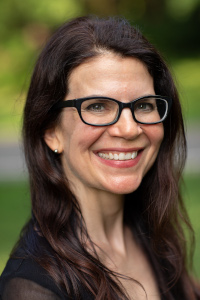 |
|
Dr. Melissa Ferguson Director of Graduate Studies, Psychology |
These are remarkable times for psychology. Scientific breakthroughs concerning the biological, emotional, cognitive, and social basis of normal and abnormal behavior are reported in the media almost daily. The faculty associated with the Department of Psychology at Yale University represents the cutting edge of research and scholarship in this broad and exciting field.
The primary goal of graduate education in psychology at Yale University is the training of researchers, for academic and applied settings, who will broaden and deepen the knowledge base on which the science of psychology rests. The graduate program in the Department of Psychology annually enrolls about 15 new Ph.D. students. When applying to the Department, each potential graduate student indicates one of five areas of concentration, and usually has a “home” in a particular lab, but it is also possible to collaborate with faculty and students in other labs and participate in programs that cut across these traditional areas (e.g., cognitive, affective and social neuroscience; health sciences).
Our Department has an illustrious history, but, more important, continues to reinvigorate itself by recruiting the most outstanding scholars we can identify in clinical psychology, cognitive psychology, developmental psychology, neuroscience, and social-personality psychology, with special efforts to attract those whose interests bridge these areas. These scholars include faculty, research scientists, postdoctoral fellows, graduate students, and undergraduates in Psychology and other programs (e.g., the School of Management, Interdepartmental Neuroscience Program).
A primary objective of our graduate program is to encourage research that follows from an understanding of the substantive and methodological bases of scientific psychology as well as from other social and biological sciences. We encourage students to appreciate the multiple historical and theoretical contexts from which the field has emerged, and to create an environment that facilitates student and faculty interest and participation in research activities. Moreover, many members of the faculty are committed to exploring the impact of their work on individual, community, and societal problems. Consequently, faculty and student interests and research often bridge basic science to issues of public policy, providing opportunities for students to develop broad areas of expertise.
We are deeply committed to graduate education and are eager to work closely with students to help them take advantage of the rich offerings of our Department and University in ways that suit their interests and talents. Our department is a thriving and diverse intellectual community that is committed to a culture of inclusiveness. The relatively small size of our graduate program and the large number of primary and affiliated faculty ensure that each student receives extensive attention in following an individualized curriculum. Over the years, we have cultivated a supportive environment that provides rigorous training. Our program is an active, exciting, flexible, and challenging setting in which qualified students who share our interests thrive. We welcome your application.